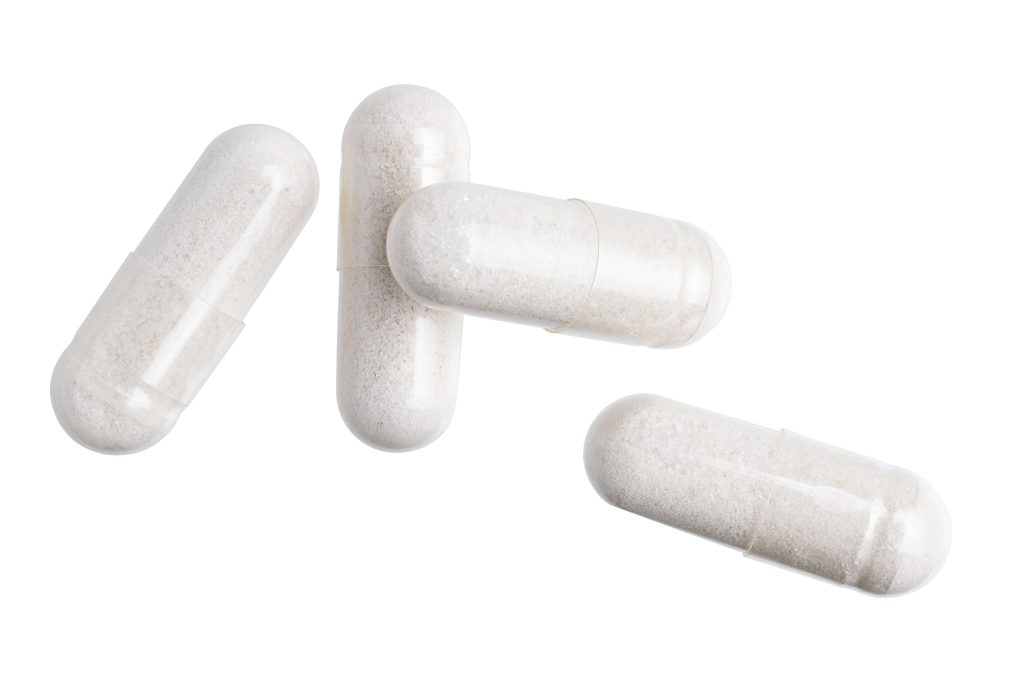Sleep and Digestion: Can Lack of Sleep Cause Bloating and Constipation?

Sleep isn’t just about feeling rested—it’s crucial for digestion, too. Learn how your sleep habits impact bloating and constipation, and discover practical ways to enhance sleep quality and digestive wellness. Let’s uncover the science behind this vital interplay and gain practical insights for better health. What Happens with Digestion When You Sleep? Just like sleep,…

Sleep isn’t just about feeling rested—it’s crucial for digestion, too. Learn how your sleep habits impact bloating and constipation, and discover practical ways to enhance sleep quality and digestive wellness.
Let’s uncover the science behind this vital interplay and gain practical insights for better health.
What Happens with Digestion When You Sleep?

Just like sleep, your digestive system follows a circadian rhythm. This helps manage various aspects of digestion, including:
- Enzyme activity
- Hormone release
- Gut motility (movement)
- Nutrient absorption
This rhythm optimizes digestive function to align with daily behavioral patterns like eating and sleeping. Overall, things become less active, except for the cleansing movements of the small intestine called the migrating motor complex.
That means that if you’re not getting enough sleep or lack sleep quality, some of these processes will be disrupted.
Let’s look at how these processes change while you sleep.
Mouth
Chewing, producing saliva, and swallowing happens more when you’re awake. During sleep, your saliva decreases and becomes more alkaline. Your swallowing rate also decreases from about 25 times per hour to just five times per hour during sleep.
Esophagus
During deep sleep, the muscles in the esophagus relax so swallowing becomes less effective and less frequent, especially during deep sleep and REM sleep.
The lower esophageal sphincter (LES) at the bottom of your esophagus also relaxes during sleep but usually stays tighter than the pressure inside the stomach.
Sometimes, during sleep, there are short drops in LES pressure when the stomach’s pressure suddenly increases. This can cause some stomach acid to move back into the esophagus.
Stomach
Sleep can also significantly affect how much acid the stomach produces and how muscles in the stomach move food. Acid production varies night to night but peaks between 10 pm and 2 am.
The effect of sleep on stomach acid production is less clear. Some studies suggest that acid production is reduced during REM sleep. However, other studies found that compared to being awake, stomach acidity is higher during non-REM sleep and even more during REM sleep.
Like gastric acid seems to have a rhythm, the circadian rhythm also regulates the rhythmic secretion of trefoil protein. This protein helps shield the stomach lining from damage. Infections like H. pylori can disrupt the release of trefoil protein, increasing the risk of harm to the stomach lining.
Melatonin, a hormone produced in response to darkness to help ease you to sleep, also plays a role in healing the stomach lining. It’s released by cells in the stomach and gut in a pattern that matches your body’s internal clock.
Melatonin seems to lower stomach acid, increase blood flow to the stomach, and help repair the stomach lining, possibly due to some antioxidant features.
As a part of digestion, the stomach moves food by squeezing and relaxing, controlled by a natural “stomach pacemaker.” This happens 2 to 4 times every minute during digestion to push food into the next part of the gut.
The amount the stomach moves can change with sleep. It moves less during a deep sleep phase (NREM) and returns to normal during dream sleep (REM). This might be linked to our body’s daily rhythm, explaining why the stomach empties slower in the evening.
Small Intestine
The small intestine’s main job is to absorb nutrients from food and move the food along toward the colon. White nutrient absorption seems to remain unchanged during sleep, movement does change.
On an empty stomach, your intestine has cleansing movements called the migrating motor complex. This starts as periodic contractions in the stomach and moves towards the colon. At night, you have slower but stronger contractions.
Large Intestine
The colon mainly absorbs water from digested food and holds onto waste temporarily. Its movements, called colonic motor function, involve coordinating contractions to move fecal material downward while maintaining control to prevent accidents.
During sleep, most colon movements slow down. Contractions that push material downward are significantly reduced at night and nearly stop during deep, slow-wave sleep.
However, during REM sleep, you have more colonic pressure and contractions, similar to during light sleep.
Waking up during sleep causes a significant increase in colonic contractions in all parts of the colon. To keep waste in and prevent accidents during sleep, the rectum and anal sphincters use a complex cycle of contractions.
This cycle stops the usual forward movement of colonic waves at night, causing more backward movement.
How Does Lack of Sleep Affect Digestion?

Your sleep and digestive circadian rhythms are coordinated to some extent by the same master circadian clock in your brain. Disruptions to one rhythm can impact the other. It should, therefore, not come as a surprise to know that having sleep issues will affect your digestion.
A study of almost 6,000 participants highlights the connection between digestive problems and sleep.
Researchers assessed sleep quality and digestive symptoms, focusing on mild symptoms like abdominal discomfort and heartburn, and adjusting for factors like age and lifestyle.
The study discovered that individuals experiencing stomach discomfort, acid reflux, bloating, and burping were more prone to sleep problems.
Factors such as gender, age, and education level influenced sleep disturbances. However, these digestive symptoms can also disrupt sleep.
What are some of the factors that may cause these symptoms? Let’s take a look.
Inflammation of the Gut Lining
Inflammation might seem like a bad thing, but it’s actually a normal part of life, even without any disease.
Aside from defending your body and keeping you alive, inflammation naturally fluctuates throughout your 24-hour day. In fact, some inflammation is necessary for deep sleep and good sleep will lower the baseline inflammation.
The two-way relationship between inflammation and sleep involves complex communication between brain cells and immune cells.
Your body employs specific chemicals like interleukin-1beta, tumor necrosis factor-alpha, and cellular pathways to manage inflammation and adjust sleep patterns.
This explains why when you’re sick or experiencing inflammation, you often feel tired or have disrupted sleep patterns.
Lack of sleep increases the overall baseline inflammation throughout your body, including in the gut lining. This is why sleep deprivation could make the gut more sensitive or more prone to upset.
Microbiota Changes
Lack of sleep can change your gut microbiota. A study of nine healthy women explored the effects of sleep disturbances on gut microbiota. Researchers tested fecal samples after two nights of partial sleep deprivation and after two nights of normal sleep.
Lack of sleep shifted the balance of gut microbiota, increasing Firmicutes and decreasing Bacteroidetes. These shifts could partly explain why chronic lack of sleep tends to lead to weight gain and digestive issues.
A review of studies exploring the link between lack of sleep and gut microbiota found that the changes found in the above study were common among sleep and gut studies.
They also confirm that the imbalanced gut microbiota, or dysbiosis, is a significant contributing factor to leaky gut.
If you experience a leaky gut, food and toxins can be exposed to the gut immune system. For some people, this shows as bloating, irregularity, and stomach discomfort.
Other changes occur, but we’ll discuss these within two specific areas of concern: bloating and constipation.
Can Lack of Sleep Cause Bloating?

One way lack of sleep can cause bloating is due to increased stress, cortisol, and stress hormones.
In healthy adults, lack of sleep in the short term increases cortisol, whereas an irregular sleep schedule slightly decreases cortisol.
This stress caused by lack of sleep can translate into digestive discomfort like bloating.
In a clinical study, 36 healthy volunteers underwent stress induction by immersing their hands in ice water or receiving an injection of corticotropin-releasing hormone (CRH) to release cortisol directly.
Researchers used MRI to measure small bowel water content and colon volume before and after a standard meal.
Stress and the CRH injection caused the small intestine in healthy individuals to tighten, leading to increased bloating. This also resulted in the expansion of the initial section of the large intestine and the total colon volume, contributing to sensations of distension and bloating among participants.
Lack of sleep also impacts hormones like aldosterone, which regulates sodium absorption and potassium excretion, increasing blood sodium levels and promoting water retention.
In a study with 15 participants, researchers monitored aldosterone levels every ten minutes over 24 hours in two conditions: normal nighttime sleep and sleep deprivation followed by daytime sleep.
Aldosterone levels increased during sleep, especially during deep stages, aiding fluid balance by retaining salt and water.
Sleep deprivation reduces aldosterone levels. This reduction may affect aldosterone’s ability to balance sodium absorption and potassium secretion, potentially affecting fluid regulation and causing bloating.
For women, increased estrogen is another hormone of concern related to lack of sleep that can contribute to uncomfortable bloating. A review of studies revealed that women with regular sleep patterns had 60% lower estrogen levels than those with irregular sleep schedules.
Elevated estrogen levels resulting from inadequate sleep not only decreases thirst sensation but also increases the amount of fluid in your blood plasma, both of which contribute to feeling bloated.
Learn how digestive enzymes can help with gas and bloating in this article.
Can Lack of Sleep Cause Constipation?
Researchers explored the connection between lack of sleep and constipation by studying healthy nurses. They tracked their bowels and sleep in their diaries for two weeks.
Of the 60 participants:
- 13% of regular day shift nurses experienced constipation
- 24% of nurses working four to eight-night shifts per month had constipation.
Another study analyzed data from almost 12,000 individuals from US National Health and Nutrition Examination Surveys, with adult participants answering sleep and bowel health surveys. Researchers also considered lifestyle factors, such as:
- Alcohol use
- Smoking
- Diabetes
- Dietary intake
Results showed a link between unhealthy sleep durations and constipation. The relationship between constipation and sleep was different between men and women. The following increases constipation risk:
- Sleeping six hours or less in men
- Sleeping nine hours or more in women
Researchers have a few theories on why short sleep might increase constipation. The first is that short sleep changes our body’s internal clock, affecting how our colons work at night. So, the colon moves and contracts more than it should normally.
Secondly, insufficient sleep may alter REM sleep, potentially affecting gastrointestinal transit for two reasons:
- α-synuclein: This protein usually helps nerves in the gut communicate but doesn’t work right with less REM sleep.
- Alpha 2A-adrenoceptor: This is part of the gut’s nerve system that helps control movement. It also doesn’t work correctly with less REM sleep, affecting how food moves through the gut.
Finally, inadequate sleep could increase susceptibility to constipation due to the increased gut inflammation discussed above.
For women, the stronger link between constipation and longer sleep durations may stem from the disruptive effect of excessive sleep on regular sleep patterns, leading to reduced bowel activity and fewer movements.
Oversleeping is also associated with mood and other health issues, which may further impact bowel function.
Why the gender difference? Researchers aren’t sure, but believe it could be due to the differences in how hormones influence bowel movements.
What is the Best Sleep Position for Digestion?

How you sleep at night could improve or hinder your digestion. This has largely been studied in the context of preventing acid from moving back up into the esophagus.
A meta-analysis of three studies with 167 participants explored the effects of three sleep positions on acid exposure time in the esophagus:
- Supine (lying on back)
- Right side
- Left side
Sleeping on the left side significantly lowered the amount of acid exposure compared to sleeping on the right or the back. There was no significant difference between sleeping on the right side or the back.
Sleeping on the left side is best because gravity works in your favor. When you sleep on your left, your stomach is lower than the esophagus.
On your right side, however, the stomach is higher, and gravity makes it easier for acid to move up into the esophagus, causing discomfort.
Gravity assists overall digestion when sleeping on the left side, helping move food from the stomach through the small intestine into the large intestine.
Other Tips to Support Sleep and Digestion
Sleep and proper digestion go hand and hand so supporting both with the strategies below can help you sleep soundly and maintain healthy digestion.
Meal Timing and Content – Does Eating Late Lower Your Sleep Quality?
Eating too close to bedtime and what you eat can poorly affect digestion and disrupt your sleep.
A study of almost 800 participants explored the relationship between meal timing in proximity to bedtime. Participants ate meals either more than three hours or within three hours of bedtime.
While eating close to bedtime didn’t affect how long it took participants to fall asleep, it did affect how many times they woke up throughout the night. People who ate close to bedtime were 40% more likely to wake up at night than those who didn’t.
Causing Acid Reflux
Researchers have a few theories as to why eating late disrupts sleep. One is a direct connection to digestion. It takes two to four hours after a meal for food to empty out of the stomach.
Eating too close to bedtime can lead to acid coming back up into the esophagus and cause you to wake up more frequently.
Throwing Off Circadian Hormones
Eating too late may also directly disrupt your circadian rhythm because eating is physiologically a daytime activity. In fact, a meal, especially a high-protein one, could increase cortisol. Normally, your cortisol should be the highest in the morning and lowest at nighttime.
Your appetite-regulating hormones also follow a daily rhythm. When your eating patterns don’t align with this natural rhythm, it can lead to circadian misalignment, potentially impacting your sleep.

Hydration
Staying hydrated is critical support for proper digestion. Your gastrointestinal tract absorbs significant water through digestive secretions (about 8 liters/day). Most absorption occurs in the small intestine, with additional absorption in the colon.
While there are various factors to consider, dehydration can be a contributing factor of constipation. Adults with low fluid intake are more likely to experience constipation.
If you already drink the recommended amount of water daily, drinking more is unlikely to improve constipation.
To ensure optimal hydration, research suggests consuming around 2.5L (85 oz.) to 3.5 L (118 oz.) daily.
Yoga
Yoga is a great way to improve both digestive health and sleep quality. A study explored the effects of yoga on sleep and constipation-related quality of life.
Ninety-six elderly participants were randomly assigned to either a yoga or waitlisted control group. The yoga group attended three yoga sessions per week for three months.
Those who did yoga for three months slept better and had fewer problems with constipation than those who did not do yoga.
Digestive and Sleep Supplements
Beyond lifestyle changes, supplements may be just what you need to get your sleep and digestion back on track.
BIOptimizers has some great options to support both, including:
Digestive Health Stack helps you break down food for optimal digestion and nutrient absorption, maintain healthy gut movement, and reduce gas and bloating.
(Learn about the role of probiotics and how they can promote healthy bowel movements in this article.)
Sleep Stack to help you fall asleep faster and get more restful sleep to wake up refreshed.
(Find out what vitamins and minerals your body needs to support high-quality sleep in this article.)

Conclusion
The relationship between sleep and digestion is crucial for overall health. Understanding how sleep patterns influence digestion can lead to improvements in both sleep quality and digestive comfort.
To enhance your digestive wellness and promote better sleep, consider:
- Avoiding meals within 2-3 hours of bedtime
- If you’re going to snack later, make sure it includes carbs and not fat
- Adding yoga into your daily routines
- Taking high-quality sleep and digestive supplements found in our Digestive Health Stack and Sleep Stack.
You can also find more tips on how to digest food faster and potentially help avoid digestion-related sleep disturbances in this article.
- Vaughn B, Rotolo S, Roth H. Circadian rhythm and sleep influences on digestive physiology and disorders. Chronophysiology Ther. Published online 2014:67. doi:10.2147/cpt.s44806
- Parekh PJ, Oldfield EC, Johnson DA. The effects of sleep on the commensal Microbiota: Eyes wide open? J Clin Gastroenterol. 2018;52(3):204-209. doi:10.1097/mcg.0000000000000965
- Hyun MK, Baek Y, Lee S. Association between digestive symptoms and sleep disturbance: a cross-sectional community-based study. BMC Gastroenterol. 2019;19(1). doi:10.1186/s12876-019-0945-9
- Krueger JM. Sleep and innate immunity. Front Biosci (Schol Ed). 2011;S3(2):632-642. doi:10.2741/s176
- Elsenbruch S, Harnish MJ, Orr WC. Subjective and objective sleep quality in irritable bowel syndrome. Am J Gastroenterol. 1999;94(9):2447-2452. doi:10.1111/j.1572-0241.1999.01374.x
- Benedict C, Vogel H, Jonas W, et al. Gut microbiota and glucometabolic alterations in response to recurrent partial sleep deprivation in normal-weight young individuals. Mol Metab. 2016;5(12):1175-1186. doi:10.1016/j.molmet.2016.10.003
- Wright KP Jr, Drake AL, Frey DJ, et al. Influence of sleep deprivation and circadian misalignment on cortisol, inflammatory markers, and cytokine balance. Brain Behav Immun. 2015;47:24-34. doi:10.1016/j.bbi.2015.01.004
- Pritchard SE, Garsed KC, Hoad CL, et al. Effect of experimental stress on the small bowel and colon in healthy humans. Neurogastroenterol Motil. 2015;27(4):542-549. doi:10.1111/nmo.12529
- Charloux A, Gronfier C, Lonsdorfer-Wolf E, Piquard F, Brandenberger G. Aldosterone release during the sleep-wake cycle in humans. Am J Physiol Endocrinol Metab. 1999;276(1):E43-E49. doi:10.1152/ajpendo.1999.276.1.e43
- Beroukhim G, Esencan E, Seifer DB. Impact of sleep patterns upon female neuroendocrinology and reproductive outcomes: a comprehensive review. Reprod Biol Endocrinol. 2022;20(1). doi:10.1186/s12958-022-00889-3
- Stachenfeld NS. Sex hormone effects on body fluid regulation. Exerc Sport Sci Rev. 2008;36(3):152-159. doi:10.1097/jes.0b013e31817be928
- Gwee KA. Disturbed sleep and disturbed bowel functions: Implications for constipation in healthy individuals. J Neurogastroenterol Motil. 2011;17(2):108-109. doi:10.5056/jnm.2011.17.2.108
- Yang S, Li SZ, Guo FZ, Zhou DX, Sun XF, Tai JD. Association of sleep duration with chronic constipation among adult men and women: Findings from the National Health and Nutrition Examination Survey (2005–2010). Front Neurol. 2022;13. doi:10.3389/fneur.2022.903273
- Simadibrata DM, Lesmana E, Amangku BR, Wardoyo MP, Simadibrata M. Left lateral decubitus sleeping position is associated with improved gastroesophageal reflux disease symptoms: A systematic review and meta-analysis. World J Clin Cases. 2023;11(30):7329-7336. doi:10.12998/wjcc.v11.i30.7329
- Chung N, Bin YS, Cistulli PA, Chow CM. Does the proximity of meals to bedtime influence the sleep of young adults? A cross-sectional survey of university students. Int J Environ Res Public Health. 2020;17(8):2677. doi:10.3390/ijerph17082677
- Slag MF, Ahmed M, Gannon MC, Nuttall FQ. Meal stimulation of cortisol secretion: A protein induced effect. Metabolism. 1981;30(11):1104-1108. doi:10.1016/0026-0495(81)90055-x
- Boege HL, Bhatti MZ, St-Onge MP. Circadian rhythms and meal timing: impact on energy balance and body weight. Curr Opin Biotechnol. 2021;70:1-6. doi:10.1016/j.copbio.2020.08.009
- Popkin BM, D’Anci KE, Rosenberg IH. Water, hydration, and health: Nutrition Reviews©, Vol. 68, No. 8. Nutr Rev. 2010;68(8):439-458. doi:10.1111/j.1753-4887.2010.00304.x
- Shree Ganesh HR, Subramanya P, Rao M R, Udupa V. Role of yoga therapy in improving digestive health and quality of sleep in an elderly population: A randomized controlled trial. J Bodyw Mov Ther. 2021;27:692-697. doi:10.1016/j.jbmt.2021.04.012






